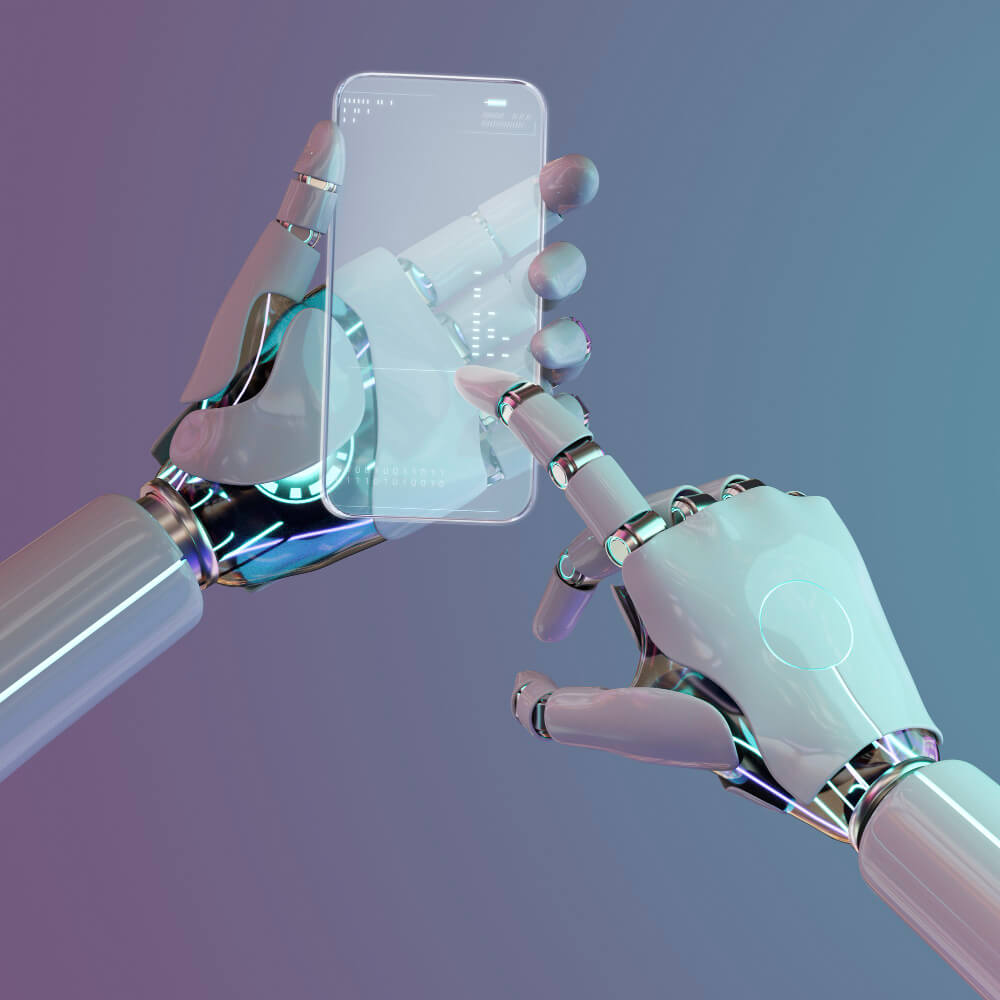- Tech Services

Concept Development
- Industry
- Emerging Tech
- Generative AI Hub
- Blog
- Contact Us

Leveraging Generative AI in for Seamless Mobile App Development
In Lets Nurture
06
Jun. 23542
VIEWSIn today’s digital era, mobile applications have become an integral part of our lives, serving various purposes across various industries. With the rapid advancement of technology, the demand for efficient and seamless mobile app development processes has soared. It is where the power of generative AI comes into play, offering innovative solutions to streamline the development journey and create exceptional user experiences. According to Statista Deloitte’s Global Mobile Consumer Survey reveals that in the past, 65 percent of smartphone users in 16 developed markets have utilized applications that incorporate machine learning.
Generative AI algorithms can significantly expedite app development by automating specific tasks, optimizing resource allocation, and enhancing efficiency, and it saves time and reduces costs associated with traditional development methods. This article will explore the importance of leveraging generative AI in mobile app development and its transformative potential.
Benefits of Leveraging Generative AI in Mobile App Development
By incorporating artificial intelligence in mobile app development, developers can unlock various benefits that enhance user experiences and open up new possibilities. Here are five significant advantages of implementing generative AI in mobile app development:
- Improved App Design and User Experience: Generative AI can generate AI-powered prototypes, allowing developers to explore various design possibilities. It enables them to create visually appealing and intuitive interfaces, enhancing user experiences.

Image by Freepik
- Accelerated Development Cycles: By automating specific development tasks, generative AI can speed up the development cycles, reducing time-to-market. It is particularly crucial in today’s fast-paced app market, where being first to market can make a significant difference.
- Enhanced App Personalization and Customization: Generative AI can analyze user preferences and behaviors to generate personalized app experiences. This level of customization can increase user engagement and satisfaction and ultimately drive app adoption and retention.

Image by Freepik
- Efficient Bug Detection and Resolution: AI-powered testing tools can identify and flag potential bugs or glitches early in development. It allows developers to address issues promptly, resulting in higher-quality apps and improved user satisfaction.
- Optimal Resource Allocation and Code Optimization: Generative AI algorithms can analyze code patterns and suggest optimizations, leading to efficient resource allocation and improved app performance. It not only saves computational resources but also ensures optimal utilization of hardware capabilities.
Examples of Generative AI in Mobile App Development
Generative AI can be used in mobile app development in several scenarios. Some of the examples include:
- Personalized Content Generation: Generative AI can be used in mobile app development to create customized user content. For example, an app could use generative algorithms to analyze user preferences, behavior, and historical data to generate custom-made news articles, product recommendations, or personalized workout routines. It helps enhance user engagement by delivering tailored content that matches their interests and needs.

Image by rawpixel.com on Freepik
- Image and Video Synthesis: Generative AI algorithms can generate realistic images and videos, which can be leveraged in mobile app development for various purposes. For instance, a social media app could use generative AI to create filters and effects that transform user photos into unique artistic styles. Additionally, an e-commerce app could employ generative AI to generate lifelike product images, allowing users to visualize items in different colors or styles before purchasing.
- Natural Language Generation for Chatbots: Mobile apps often utilize chatbots to provide customer support or assist users in various tasks. Generative AI can power these chatbots with natural language generation capabilities, producing human-like responses to user queries. The chatbot can generate relevant and informative responses by understanding the intent of the user’s message, enhancing the overall user experience and customer satisfaction.

Image by rawpixel.com on Freepik
- Game Content Generation: Generative AI can be employed in mobile game development to automatically generate game levels, characters, and other game assets. It allows developers to create vast and diverse gaming experiences without manually designing every component. Mobile games can offer dynamic and endlessly varied gameplay using generative AI algorithms, keeping users engaged and entertained.
- Music Composition and Remixing: Mobile apps focused on music creation, and remixing can benefit from generative AI algorithms. These algorithms can analyze existing music tracks, understand musical patterns, and generate new compositions or remixes based on the learned patterns. Users can experiment with different styles and genres, creating unique musical pieces without formal music training. It enables mobile app users to unleash creativity and explore new musical horizons.
Best Practices for Implementing Generative AI in Mobile App Development
Integrating generative AI into mobile app development can be a powerful way to enhance user experiences and deliver innovative features. By following these practices, you can maximize the benefits of generative AI while ensuring a smooth and successful integration within your mobile app.
- Understand the Problem Space: Before integrating generative AI into your mobile app development, you must thoroughly understand the problem you are trying to solve. Identify the areas where generative AI can add value and enhance the user experience. Conduct user research, gather feedback, and analyze user behavior to understand their needs and pain points.
- Start Small and Iterate: When implementing generative AI in mobile app development, it’s advisable to start with small, manageable projects. By breaking down the implementation into smaller chunks, you can validate ideas quickly, gather user feedback, and iterate based on the results. This iterative approach allows you to gradually refine and improve the AI features while minimizing complex integration risks.
- Optimize for Performance: Mobile devices have limited resources compared to desktop or server environments. Therefore, optimizing the performance of generative AI algorithms for mobile app deployment is essential. Consider factors such as computational complexity, memory usage, and power consumption. Employ techniques like model compression, quantization, or hardware acceleration to ensure efficient and smooth execution on mobile devices.
- Focus on User Experience: Generative AI should augment the user experience, making it more intuitive, engaging, and personalized. Pay attention to the user interface design, making it seamless and integrated with AI functionalities. Ensure that AI-generated content or suggestions are relevant and timely. Conduct user testing and gather feedback to refine AI features and align with user expectations.
- Prioritize Privacy and Security: Generative AI involves processing and analyzing user data. It’s crucial to prioritize privacy and security considerations throughout the implementation process. Implement robust data protection measures, such as anonymization, encryption, and secure transmission protocols. Obtain explicit user consent and communicate how the AI functionality operates, what data is collected, and how it is used to ensure transparency and build trust with your users.
How Runaway, an AI-based Startup Successfully Integrated Generative AI For Mobile App Development- A Case Study
Runway, the AI startup known for its collaboration on Stable Diffusion, successfully leveraged Generative AI for seamless mobile app development. They introduced the iOS app, RunwayML, which extends their generative AI capabilities to mobile users. The app allows users to transform existing videos from their camera roll into new 15-second versions, customized according to their preferred style using Runway’s Gen-1 AI model.
Users upload videos and provide a natural language prompt for the desired alterations. While the app-generated videos contain a watermark, users can remove it by paying. Additionally, users can purchase tokens to generate more videos as the free video quota is limited. This innovative application demonstrates Runway’s ability to democratize generative AI for mobile app development.
Generative AI has immense potential to revolutionize the mobile app development industry. By leveraging this technology, developers can create seamless, personalized, and highly engaging apps that cater to the evolving needs of users. As the demand for exceptional mobile experiences rises, app developers must explore and embrace generative AI technologies and tools. By doing so, they can stay ahead in the competitive app market, deliver remarkable user experiences, and drive business success.




